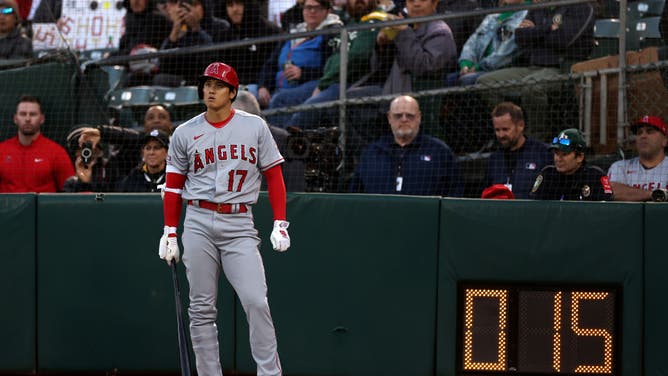MLB Reveals Decision On Pitch Clock Changes For The Playoffs
MLB made numerous pace of play rule changes before the 2023 season with the intention of speeding up game times.
By and large, they've been extremely successful.
The pitch clock has been the most obvious, notable change, with hitters and pitchers forced to adjust to new routines. Some players, perhaps most significantly Max Scherzer, have openly expressed their disregard for the new rules.
READ: TOUGH GUY: MAX SCHERZER FURIOUS AFTER HE RECORDS STRIKEOUT DUE TO PITCH CLOCK VIOLATION
But there's no argument that it's helped reduce game times. This season the MLB average has dropped dramatically, from over three hours to around 2:40 per game.
That said, a few months ago, reports broke that players had spoken to Major League Baseball leadership about altering the clock for the playoffs. Essentially, with the bigger stakes, higher pressure and louder stadiums, some players wanted to add a few seconds in October.
READ: MLB PLAYERS REPORTEDLY WANT A LONGER PITCH CLOCK IN THE PLAYOFFS
On Friday, MLB revealed its decision on whether or not it'd add time or leave the clock as it is. And if you were hoping for longer playoff games, prepare to be disappointed.
Jeff Passan posted that the rules in effect for the regular season would continue into the playoffs.

Shohei Ohtani of the Los Angeles Angels stands next to the pitch clock. easily the most discussed new rule for the 2023 MLB season. (Photo by Ezra Shaw/Getty Images)
Pitch Clock Decision Means MLB Playoff Games Will Be Dramatically Shorter Than Previous Years
As regular season games increased in length over the years, postseason games were even worse.
Frequently over the past decade, nine inning playoff matchups would take four hours or more. Increased pitching changes, substantial delays between pitches and more step outs in pressure situations all contributed to ever-expanding game times.
There's an argument to be made that the playoffs could use a bit longer clock rules to ramp up the drama. But there's an equally compelling argument that the rules should stay the same, regardless of when the game takes place.
Not to mention MLB likely wants to showcase its pace of play enhancements to a wider national audience.
The pitch clock has helped games feel substantially more action packed; with the same offensive production coming in less time. And for MLB's most important games, that welcome change will reportedly continue.